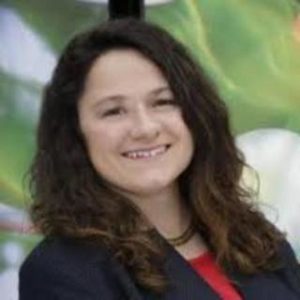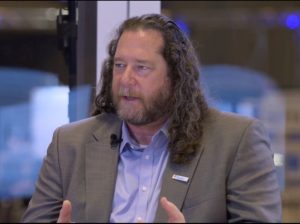BoF 2022 – Americas HPC Collaboration
Birds of a Feather : Americas HPC Collaboration
Wednesday, 16 November 2022 12:15pm – 1:15pm CST

The 2022 edition of the Birds of a Feather (BoF) Americas High Performance Computing (HPC) Collaboration seeks to showcase collaborations that have resulted from the partnerships formed in previous editions. It will also present opportunities and experiences between different HPC Networks and Laboratories from countries in North, Central, and South America. The goal of this BoF is to show the current state of the art in continental collaboration in HPC research, latest developments of regional collaborative networks, and to update the roadmap for the next year for the Americas HPC partnerships.
The BoF Americas HPC Collaboration seeks to present different collaboration experiences between institutes, supercomputing centers, national laboratories, research groups and networks such as ACCESS, Compute Canada, Oak Ridge National Laboratory, Argonne National Laboratory, Pittsburgh Supercomputing Center with their different peers in Latin America such as SCALAC, RICAP, Brazilian Scientific Computing National Laboratory; CINVESTAV-Abacus (Mexico), National Laboratory for High Performance ( Chile), Advanced Computing Center (Colombia), National High Technology Center (Costa Rica), and more. This BoF will also present the state of the art of continental collaboration in HPC, discuss current and future regional perspectives and exchange practices that address common problems and challenges.
For the SC20 virtual edition, we had more than a hundred attendees (we counted more than 400 cumulative attendees), from multiple countries in North, Central, South America and the Caribbean. Similarly, the SC21 edition had a large audience. Assuming this year the event will be in-person, we expect at least 50 people attending our BoF.
The expected outcomes of this BoF are described next: First, to build on top of our previous discussions to evaluate collaborative activities in research and outreach. Second, to offer a space to show relevant research projects developed by different actors (and selected of the First workshop of Americas HPC Collaboration developed in the 2022 Latin American Conference on HPC, CARLA) and finally, a discussion to increase and to strengthen the official Americas HPC Partnership, on behalf of the interest shown by ACCESS, ComputeCanada, SCALAC (with the support of RedCLARA), Department of Energy Laboratories, National institutes and centers of all the Americas to continental interests and beneficiaries. The result of the discussion will be the roadmap for the next two years.
The 2022 BoF Americas HPC Collaboration will have strategic guest presenters and representative guest attendees from international and national consortiums and decision makers in the room to improve the discussion and to facilitate the interaction between all Agenda
Agenda
| Time | Description | Chair/Presenter |
|---|---|---|
| 12:15-12:16 | Welcome and Description of the Americas HPC Collaboration initiative | Verónica VERGARA Carlos J. BARRIOS the participants. |
| 12:16-12:26 | Highlights from ORNL | Verónica VERGARA |
| 12:26-12:36 | Selected Research Projects from the HPC Collaboration workshop at the Latin American HPC Conference (CARLA) 2022 “Towards High Performance Computational Material Research Collaboration”. D. Peña Ballesteros et al (UIS, Colombia) (3-5min) “CyberColombia: a regional initiative that meets academia, industry and international entities through research in HPC” (J. Monsalve) (3-5min) |
Moderated by Silvio RIZZI |
| 12:36- 1:10 | HPC Collaboration opportunities (10min Each) ACCESS project: John Towns (NCSA) Alliance Canada Project: Seppo Sahrakorpi (AllianceCanada) ECP: Suzanne Parete-Koon (ECP) |
Moderated by Philippe NAVAUX |
| 1:10- 1:15 | Close and Remarks | Esteban MENESES |
About the Guest Panelists
Suzanne Parete-Koon (USA)

After completing her PhD in astrophysics at the University of Tennessee, Knoxville, in 2008, Parete-Koon spent a year working as a foreign affairs officer for the US Department of State through an American Institute of Physics diplomacy fellowship. During that time, she served as a ITER Council representative and the United States’ primary point of contact for space weather. She helped foster international relations by facilitating global scientific collaboration through workshops and meetings, including the United States–Egyptian remote sensing satellite data workshop.
In 2009 she accepted a postdoctoral position with the Scientific Computing Group at OLCF, a DOE Office of Science User Facility located at ORNL. At that time, she was working on developing computational simulations of the web of nuclear reactions that power stars and stellar explosions.
Her passion for people eventually directed her interests toward the support angle of computational science. She works as an OLCF user support specialist and HPC Engineer collaborating with OLCF staff on innovations to improve user experiences and working directly with users to help them get the most out of their time on the center’s supercomputers and clusters.
Suzanne currently serves the the Exascale Computing Project’s HPC Workforce Development and Retention Action Group leader.
Seppo Sahrakorpi (Canada)

Seppo Sahrakorpi is a Senior Analyst (Advanced Research Computing) at Digital Research Alliance of Canada, focusing on digital research infrastructure strategy and planning. Seppo has a PhD in Computational Condensed Matter Physics from Tampere University of Technology in Finland. He has worked in the IT and ARC fields for over 20 years as an academic, systems administrator, ARC support engineer, lead IT architect, project manager and entrepreneur. Seppo’s career has spanned academia (Tampere University of Technology, Northeastern University, Harvard University, McMaster University), the non-profit sector (Canadian Research Data Center Network, the Alliance) and the private sector (TotalView Technologies, Pilvi Computing Inc.).
For a general link to Alliance website, please use the following:
For a link to my bio, please use the following:
John Towns (USA)

John Towns holds two appointments at the University of Illinois at Urbana-Champaign. He is the Executive Associate Director for Engagement at NCSA (the National Center for Supercomputing Applications, http://www.ncsa.illinois.edu), and Deputy CIO for Research IT (http://researchit.illinois.edu) in the Office of the CIO at Illinois. He is also PI for the NSF-funded OpenCI ACCESS Coordination Office award and has been the PI and Project Director for the NSF-funded XSEDE project (the Extreme Science and Engineering Discovery Environment, http://XSEDE.org). Towns provides leadership and direction in the development, deployment and operation of advanced computing resources and services in support of a broad range of research activities. In addition, he is the founding Chair of the Steering Committee of PEARC (Practice and Experience in Advanced Research Computing, http://www.pearc.org). He earned M.S. degrees in Physics and Astronomy from the University of Illinois and a B.S. in Physics from the University of Missouri-Rolla.
For more information about Access: https://access-ci.org